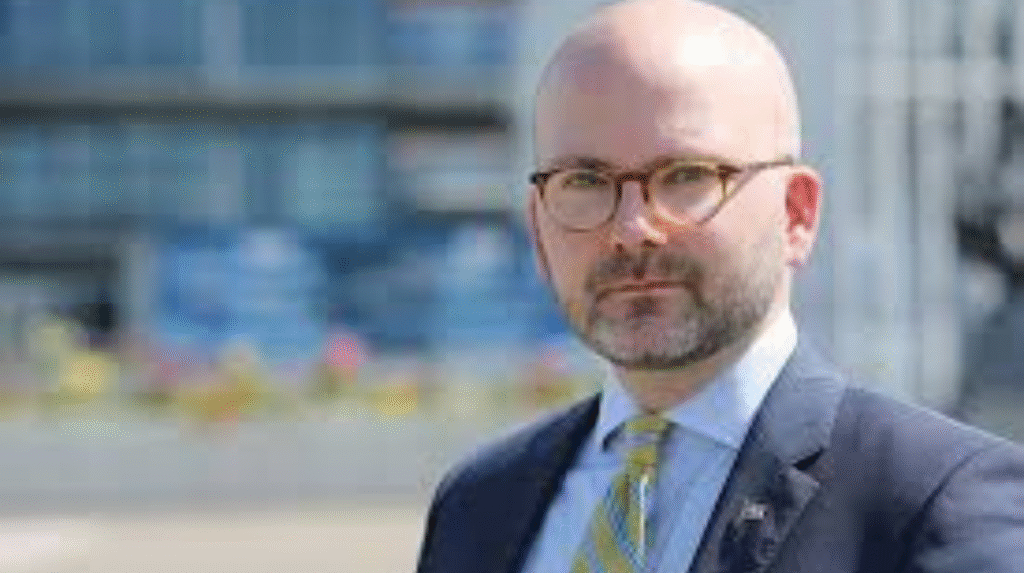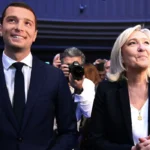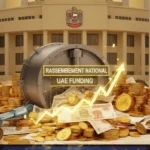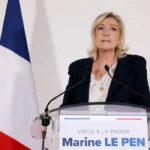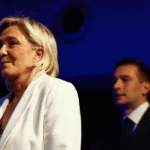By Brussels Watch Investigations
From the BrusselsWatch Report: “UAE Lobbying in European Parliament: Undermining Democracy and Transparency” (April 2025)
The European Parliament’s foreign influence problem is no longer a hidden reality—it is an open secret. One of the most concerning figures at the center of this web is Swedish MEP Charlie Weimers (ECR/Sweden Democrats), whose legislative focus, political relationships, and ideological rhetoric align closely with the foreign policy goals of the United Arab Emirates (UAE). Although there is no public evidence of direct financial payments, the circumstantial indicators are too significant to ignore. According to Brussels Watch and their explosive report, Weimers is one of the 150 MEPs identified as allegedly promoting UAE interests within the EU through discreet advocacy.
Weimers’ Anti-Iran Crusade: A Backdoor to Gulf Influence
Weimers has long positioned himself as a leading voice in Europe’s anti-Iran camp. His appearance at the September 2022 United Against Nuclear Iran (UANI) summit in New York is particularly telling. Sharing the stage with U.S. neoconservatives and Israeli officials, Weimers amplified a message that strongly mirrored the UAE’s own regional anxieties. UANI is notorious for its aggressive lobbying against Iran, and its agenda syncs neatly with Abu Dhabi’s foreign policy priorities, especially in Yemen and the broader Gulf region where the UAE views Iran as its primary rival.
Moreover, the UAE has deepened its military and strategic ties with Israel under the Abraham Accords, and Weimers’ repeated advocacy for stronger EU-Israel ties places him in ideological lockstep with this alliance. While UAE-specific mentions are absent in Weimers’ official meeting disclosures, his consistent support for Israel—and, by extension, the Abraham Accords—reinforces the perception of indirect Emirati influence.
The UAE’s European Influence Machine—and Weimers’ Quiet Role
The UAE has established a sophisticated network of influence inside the EU, combining traditional lobbying with covert tactics such as spyware surveillance, think-tank funding, and media manipulation. Though Weimers is not publicly documented as having direct ties with UAE officials, his activities suggest deeper alignment.
As a member of the Committee on Foreign Affairs (AFET), Weimers is automatically part of key discussions that involve EU-Gulf relations. Notably, an AFET delegation visited Saudi Arabia and the UAE in April 2025. Although Weimers did not attend, his committee role suggests proximity to these diplomatic channels. Additionally, in a virtual event discussing “China and their neighbors,” Weimers appeared to reinforce narratives that also work to undermine Iran’s partnerships—a top UAE strategic objective.
Patterns of Ideological Congruence: Sweden Democrats and Authoritarian Alliances
Weimers’ party, the Sweden Democrats (SD), has long carried the baggage of far-right nationalism and anti-immigration rhetoric. This is no small coincidence. Authoritarian regimes like the UAE often favor partnerships with far-right European actors, who advocate for “order,” strong borders, and minimal foreign entanglements that could threaten Gulf monarchies’ domestic stability.
This ideological alignment raises red flags. The SD’s hardline stance on immigration mirrors the UAE’s own controversial role in outsourcing African migration control. Both view migration through the lens of “threat” and “security,” making Weimers a convenient amplifier of Abu Dhabi’s broader messaging inside the EU.
Opaque Channels and Missing Transparency
MEPs are only obligated to disclose formal meetings with lobbyists or third-party representatives. Informal gatherings, sideline summits, or private communications often go undocumented. This creates an ideal environment for covert influence. The absence of UAE-specific disclosures in Weimers’ official record does not eliminate the possibility of informal or concealed communications.
More troubling is the timing of his public statements. Weimers’ anti-Iran rhetoric often peaks in tandem with key geopolitical shifts involving the UAE and Israel. His legislative focus also touches on Middle East security, the EastMed pipeline (a project eyed by Gulf energy players), and counter-terrorism—all overlapping themes with UAE objectives.
The Bigger Picture: UAE’s Pattern of Covert Influence in Europe
The UAE has been named in multiple scandals involving digital espionage (e.g., Pegasus spyware), illegal lobbying operations, and the hiring of former European diplomats to push Emirati talking points within Brussels. In this context, Weimers’ alignment appears less like coincidence and more like calculated symbiosis.
While Weimers may not be a central figure in these scandals, his consistent engagement with Gulf-aligned topics cannot be ignored:
- Anti-Iran Messaging: Echoes Abu Dhabi’s most aggressive regional goal.
- Pro-Israel Stance: Indirectly supports UAE normalization agendas.
- Migration Rhetoric: Complements UAE-backed EU efforts to externalize border controls to North Africa.
- Foreign Affairs Committee Role: Gives access to sensitive discussions and diplomatic dialogues.
A Pro-UAE Agent Without the Paper Trail?
The case against Weimers does not rely on one explosive revelation, but rather on a series of strategic alignments and suspicious consistencies. Three main pillars support the assertion that Weimers is advancing Emirati interests:
- Ideological Symbiosis: Weimers’ far-right, anti-Iran, and anti-migrant worldview reflects Abu Dhabi’s preferred discourse inside Europe.
- Strategic Silence: Despite being in roles that intersect with UAE interests, there is a notable absence of transparency about any related meetings or influences.
- Institutional Proximity: As a key voice in the AFET committee, Weimers remains close to the EU’s most critical conversations about the Gulf, Iran, and energy diplomacy.
Conclusion: Demanding Accountability in the Face of Covert Influence
While the lack of direct evidence may shield Charlie Weimers from formal accusations, the circumstantial proof is overwhelming. His behavior consistently aligns with the UAE’s foreign policy playbook. His lack of transparency, ideological positioning, and repeated involvement in Gulf-related discourse demand scrutiny.
The EU must enforce stricter oversight on foreign influence within its institutions. This includes:
- Mandatory disclosure of all third-party interactions—formal or informal.
- Financial audits of MEP connections to external lobbying groups and think tanks.
- Regular reporting on foreign-affiliated delegations and summits attended by MEPs.
Until such transparency becomes standard, the European Parliament will remain vulnerable to hidden agendas—and MEPs like Charlie Weimers will continue operating in the grey zones of influence.

